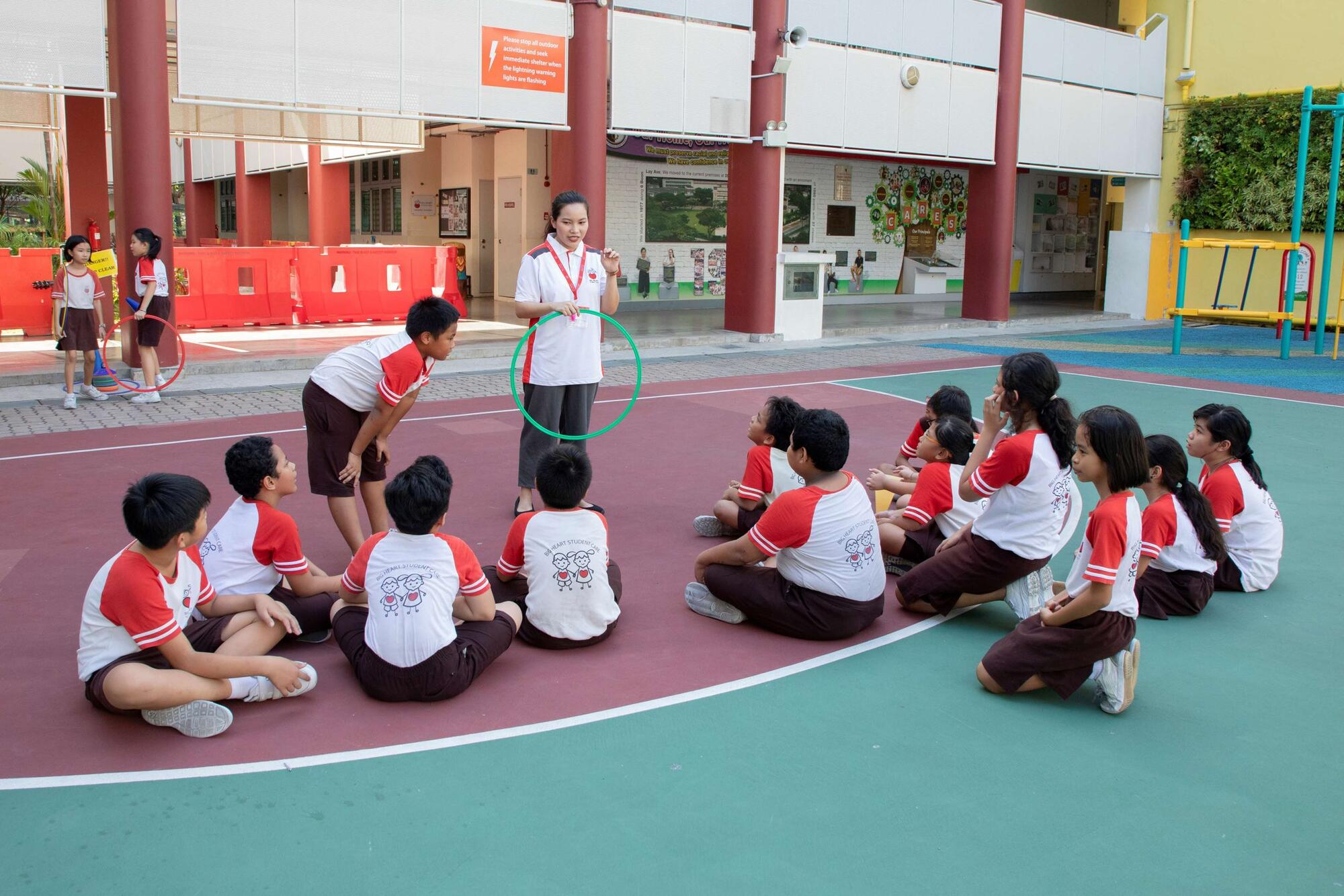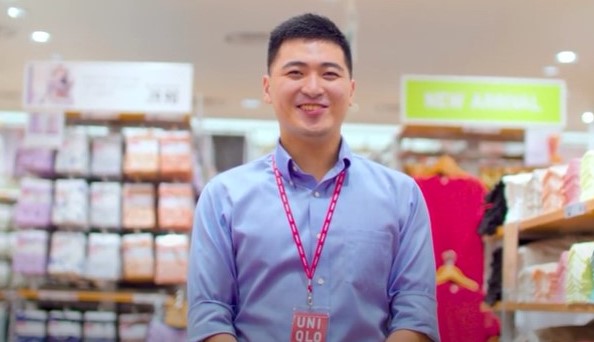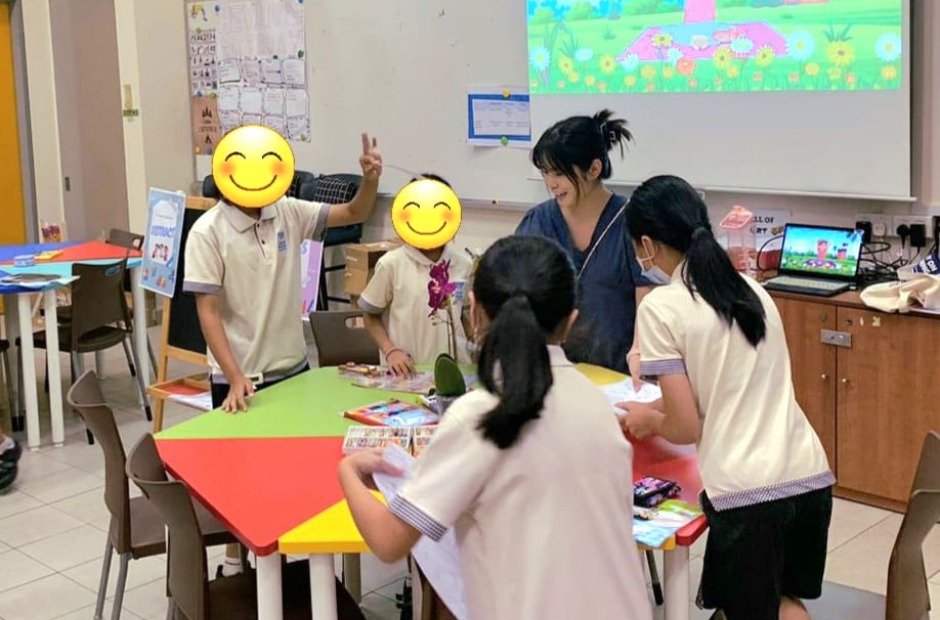Huddled around the TV with his excited children, Mr Kelvin Koh looks forward to family entertainment time on weekends. One of their favourite programmes is the hit Japanese anime Naruto.
Off-screen, the ninja character also appears in a stack of sketches that Mr Koh, the upper primary Year Head at St Anthony’s Primary School, carefully saves in a plastic folder.
The artworks are gifts from a former student, who navigated a bumpy journey of growth and transformation. And Mr Koh had played a big part in nudging him on.
The boy had transferred schools at Primary 5 and joined Mr Koh’s Foundation Class, a curriculum designed for less academically inclined students in primary school. The boy seemed upset at the change of environment.
Mr Koh then learned that there was a recent and major change in his life – he had to move with his grandmother into a public rental flat after his parents were incarcerated. A change in school added stress for him.
The boy was then admitted into ASCEND, the school’s after-school student development programme to engage upper primary students in need. The timetable lent stability to the students’ afternoons, with scheduled homework and play time, sports, and activities like music, art, and dance.
There, the boy also picked up skills such as time management and planning his day, and could socialise with schoolmates and teachers.
Mr Koh and his team of teachers also paid the boy and his grandmother frequent visits at their home. Over time, “I think he began to feel that this transition [to St Anthony’s] might work”, says Mr Koh, smiling. Grateful for Mr Koh’s care, the boy presented him with Naruto sketches every Teachers’ Day after he found out that Mr Koh and his children were fans of the anime. The boy has since graduated, but returns to St Anthony’s often to visit his former teachers.
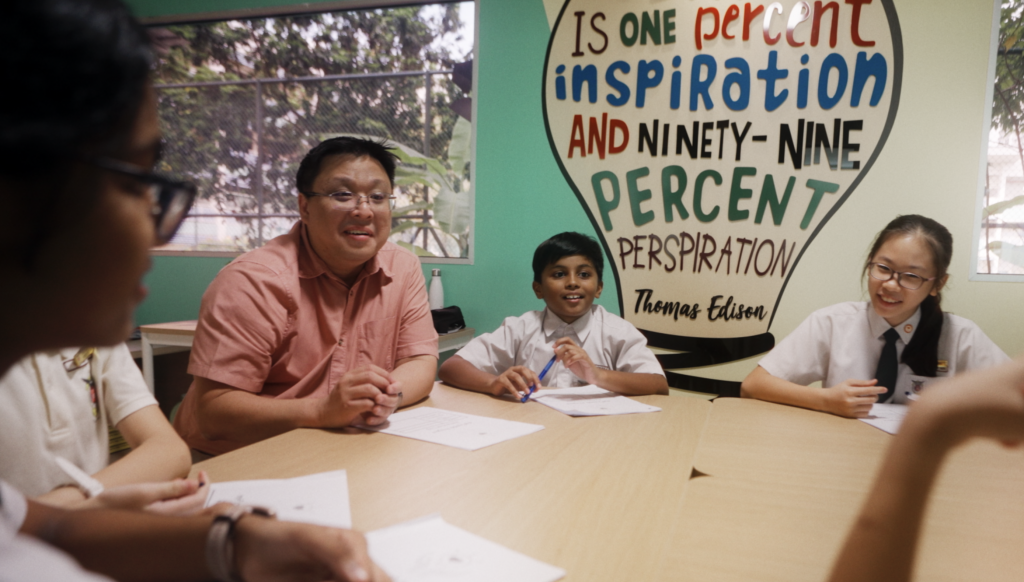
Different programmes for lower and upper primary students
Programmes like ASCEND are part of school efforts across Singapore to help children from disadvantaged homes level up.
St Anthony’s launched the first iteration of ASCEND in 2018, to work with students with behavioural issues and families who struggled financially.
“It goes beyond material and academic needs, with a greater focus on the psychological, behavioural, and emotional needs of the students,” says Mr Koh.
While ASCEND mainly caters to upper primary students, the school runs the Ministry of Education’s (MOE’s) TRANsition Support for InTegration (TRANSIT) programme for Primary 1 students to make a smooth transition from kindergarten to primary school. Those presenting issues adjusting to school life and at lesson time may be identified for support, especially if they come from disadvantaged backgrounds.
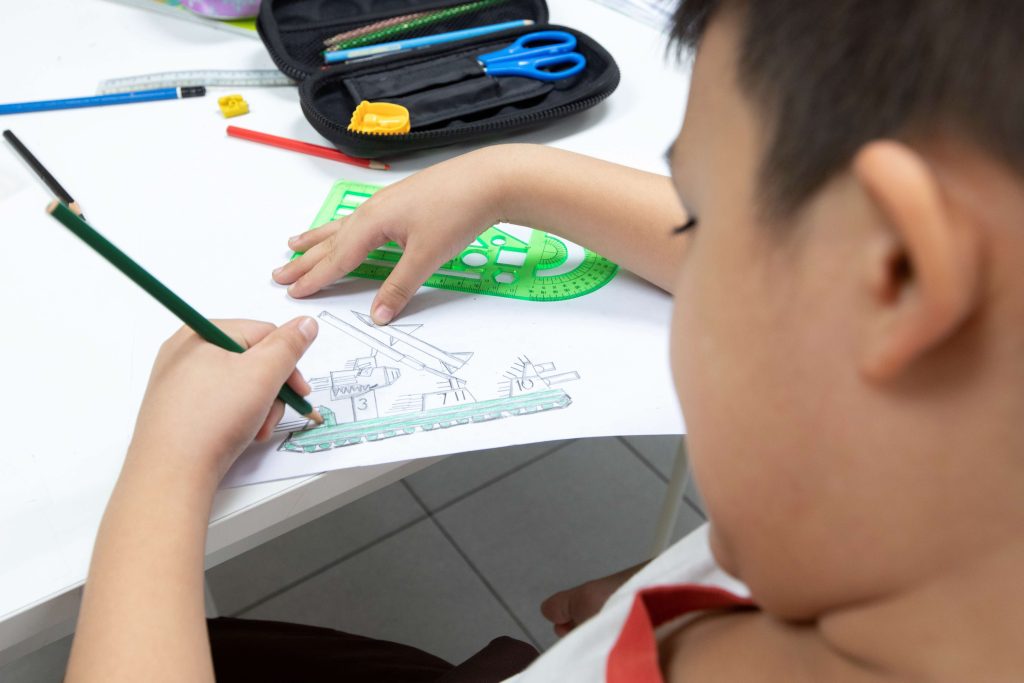
Image and main image: Ministry of Education file photos
“We spend the first three weeks of Primary 1 observing the students’ behaviour in class,” says Mdm Mardiana Radja Abdul Rani Atjeh, the school’s Special Education Needs Officer. Students are assessed according to three main domains – classroom work habits, social and communication skills, and emotional regulation.
Following that, the school identifies students who stand to benefit from TRANSIT. They are taught a self-management skills curriculum, provided by MOE’s Psychological Services Branch, that helps with behaviour management, learning needs and other skills that can help them level up and progress in their early primary school years.
Community engagement bolsters range of support services
Schools also tap on community partners to provide more holistic care through MOE’s UPLIFT efforts for students from disadvantaged backgrounds. There is a Student Care Centre (SCC) in every primary school, which provides affordable, basic care for students after school. The centres work with community partners to enrich their activities, and SCC fees are subsidised for lower-income families.
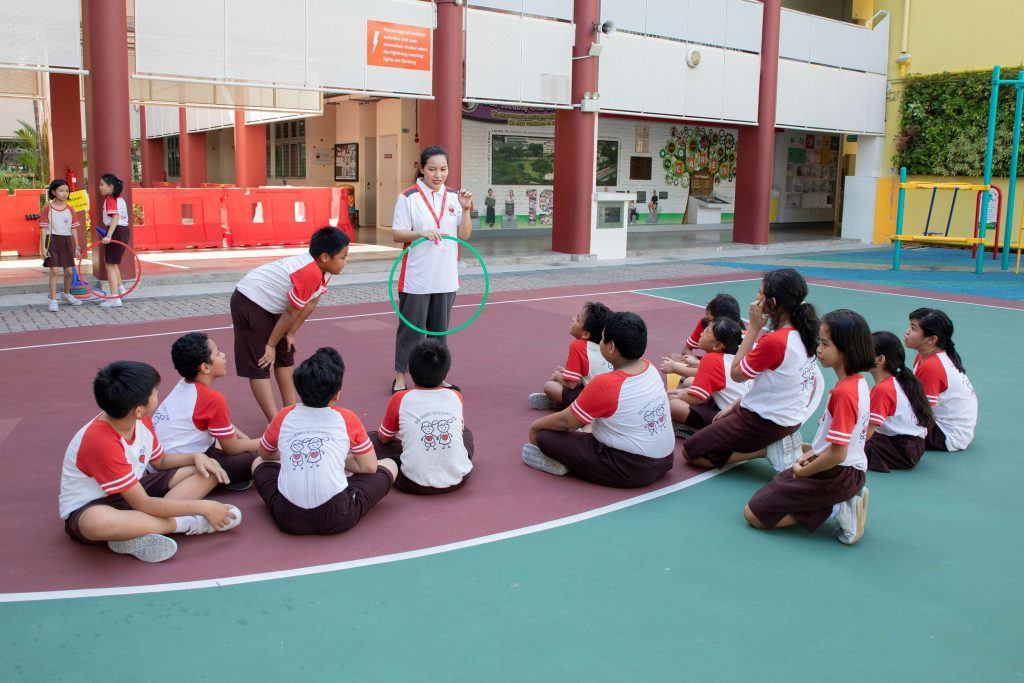
In addition, the UPLIFT Community Network (UCN), piloted in 2020, has an entire community network of full-time Town-Level Coordinators (TLCs) and volunteer family befrienders, to complement the schools’ efforts for students and their families. With their help, schools can better reach out to students with absenteeism, behavioural, and even media addiction issues.
“[TLCs] will do what it takes to improve the child’s connectedness to the school,” says Ms Eileen Chia, a TLC. They work closely with the school to maintain community touchpoints and consolidate students’ data, she adds.
Volunteer family befrienders like Ms Anjali Kumar, an IT professional, also play an essential role in ensuring that the child goes to school. “Our role is to stay connected with the parents,” she says.
External support from Ms Chia and Ms Kumar allows schools to tackle the core reason behind a student’s absenteeism. In one instance, they identified that a student was constantly absent because he lived quite a distance away from school. The school then worked with Hong Kah North Community Club to provide him with transport funding.
This large-scale network has grown. Today, UCN has integrated with the Ministry of Social and Family Development’s ComLink+ initiative to enhance social service delivery and improve coordination across programmes.
This integration has strengthened partnerships between schools and town-level Social Service Offices (SSOs) to better support families. For example, families in need are assigned family coaches (now integrated with the role of the TLC) to motivate them towards achieving their goals and act as a consistent touch point across different social support services. Family coaches also collaborate with schools to support the children’s educational needs.
As Dr Maliki Osman, Second Minister for Education, expressed in a 2023 speech, “We will…continue to work closely with other government agencies to explore how best to strengthen whole-of-government social service delivery for higher needs students and those coming from disadvantaged backgrounds.”
For educators like Mr Koh, uplifting students is an ongoing process he is glad to be a part of. “The best measure of success is about being the best version of yourself,” he says. “We can only sow the seeds into those students and help them to develop into their best selves.”



